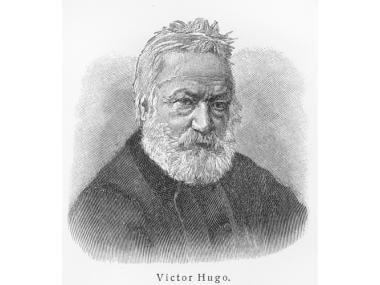How English Words Came Into French After World War II
French authorities tried to keep English out of their language, but “tank,” “bulldozer,” and “jeep” got the ball rolling, and it kept going from there.

The English language has been borrowing words from French since William the Conqueror and his Norman followers invaded British shores in 1066. The French language, on the other hand, did not return the favor. In fact, French didn’t borrow many English words at all until nearly 900 years later when French, British, and American troops were in close contact as allies during World Wars I and II.
Types of Anglicisms
Loanwords in the 20th Century
Before World War II, the French language rarely borrowed words from English. Anglicisms, as they are known, rapidly increased in popularity during the war, when French and English-speaking troops frequently worked together as allies on the battlefield. American military tech entered the global consciousness along with the corresponding English-language names. It all happened so quickly that even though the French language authorities strongly resist the adoption of Anglicisms, they couldn’t do a whole lot to stop the influx of words like “tank,” “bulldozer,” and “jeep.” And as technology advances, that trend continues, with “drone” now also being commonly used in France too (Kostiuk, 2018).
After the end of the war, the American lifestyle of the 1950s captured the global stage and brought more Anglicisms right along with it. Some of these words, like “cow-boy,” referred to concepts that were new to the French. Other loanwords were adopted by French speakers so quickly and completely that there was hardly any time to do much of anything about it before they became everyday words and terms, like “baby-food” and tech words like “gadget,” “gif,” and “tablette” (Lazarev, 2017).
Current Categories
The linguist Paula Chesley from the University of Minnesota has grouped English words that come into French into 10 general topics (2010): everyday life, politics, economics and finance, law, sports, cinema, music, fashion, appearance, and food. Helpful words like “parking” and “agenda” permeate even the most professional settings, despite many French speakers insisting that they remain informal. According to a study by Maryna Kostiuk in 2018, the French have adopted words from every part of speech, from interjections like “wow” to verbs like “boost” or “flash,” though such verbs will often take on a French-ified suffix to indicate that they are, in fact, verbs, so they are pronounced “booster” and “flasher.” Verbs in particular are hard to ignore or replace with French equivalents, especially if they’re borrowed as part of a popular verbal phrase. Examples include “has-been,” “burn-out,” “stand-up,” and “startup.” (Kostiuk, 2018)
Methods of Popularization
American Lifestyle
As we’ve mentioned, the glamorization of the American lifestyle was a significant force behind the popularization of many Anglicisms within the French language. Some examples are “primetime,” “camping,” and “street-art.” Another common example would be anything having to do with American food and beverages — the less healthy, the better: “fast-food,” “cake,” “hot dog,” and “snacking.” “Squatting,” “flashmob” and “manspreading” were hard to even begin translating into French, even in the most cumbersome of manners, and they entered the cultural consciousness quickly.
Important cultural events also carry Anglicized names because English-language marketing campaigns tend to be more successful, particularly in regard to reaching an international audience. French festivals like “ONLYLIGHT” and “Against the Wind” are intentionally marketed in English, while other cultural phenomena like “Brexit” are discussed so widely on social media that their English name becomes near-universal. (Lazarev, 2017).
American Industries
Similarly, fields that are largely dominated by the United States inject new words into French. Proper nouns that start as popular company names pick up French suffixes, as with “Facebook” becoming “facebookien.” French speakers may also talk of a state of “netflixisation” or “ubérisation.” Similarly, loanwords used for advertising, such as “made for sharing” or “made in France” may result in the term becoming commonplace elsewhere. One of the best examples of this was Google’s ad slogan “Google-le” which French speakers reinterpreted into a verb “googler” and eventually the now-popular form “googliser” (Lazarev, 2017).
Tech Boom Terms
As one might expect, the tech boom of the 1990s was a big source of this type of loanword: “digital,” “smartphone,” “chat,” “email,” and a boatload of techie acronyms like “CD,” “DVD,” “USB,” “LOL,” and even “FBO” for “facebook official, as in “Their relationship is now facebook official or FBO.”
But it hasn’t been just the Internet pushing English loanwords onto French speakers. The United States has also dominated popular media over the last 50 years or so, giving French the words “fiction,” “magazine people,” “superstar,” and both “news” and “fake news” according to a paper by Lazarev in 2017.
Words for hobbies and interests that are popularly associated with American culture are also common now in French, according to Kostiuk’s study, including sports like “tennis” and “street basketball,” music words like “folk,” “pop star,” and “freestyle,” cinema and television terms like “casting,” “télé-réalité,” “remake,” and “fan,” beauty words like “fashion week,” “lifting” as in plastic surgery, “superwoman” as an empowering nickname for women, and clothing words like “jeans,” “tee-shirt,” and “top” (Kostiuk, 2018).
Everyday & Workplace Words
Then there are the truly necessary, indispensable loanwords. These are nearly impossible to get rid of for various reasons. They include concepts that previously had no name in French, like “bump-stock,” but sometimes these Anglicisms stick around whether there’s an existing term in French or not. Oftentimes, a word or term that is popularly or necessarily used within a professional setting will stick around because its usage can’t be simply dismissed as informal. According to a study featured in The Parisien and cited by Kostiuk, the most common Anglicisms in French professional settings in 2018 after “brainstorming” are “mainstream,” “workshop,” “bullet points,” “conf call,” “one-to-one,” “desk,” “personal branding,” “process,” and “reporting” (Kostiuk, 2018). According to Artiom Lazarev’s 2017 study, multi-word phrases are likely to be some kind of loanblend, typically retaining English syntax. For instance, if you’re acting odd, a friend might tell you “t’es off” or perhaps “t’es trop speed” when you’re going too fast. If you’re in trouble, you are “en bad,” and something that isn’t clean “n’est pas clean” (Lazarev, 2017).
Adaptations of Anglicisms
Lexical Adaptations
Eight out of every 10 French Anglicisms are lexical adaptations, meaning that they are borrowed with little or no adjustment in either meaning or form, while almost all the others are semantic adaptations, which look nearly identical to their English origins but have evolved a different meaning in French over time. Lexical adaptations mean the same thing as their English counterparts, such as “email,” “smartphone,” and phrases relating to “the cloud.”
Then there are the Anglicisms that stick around simply because the French alternative is cumbersome. “Boitier Wi-Fi” has a couple syllables more than English “box Wi-Fi,” but examples like “voiture bonne marché” for “cheap car” really highlight the compact convenience of English (Lazarev, 2017).
Semantic Adaptations
About 20% of these Anglicisms have either expanded or narrowed their definitions as they evolve within French language; for instance, “basket” is a general term for basketball, and the verb “scotcher” may apply to taping something down or any other way of immobilizing it, and foosball may be called “baby-foot.” The remaining 5% are said to be syntactic and graphical adaptations like “pm” and “blvd” (Kostiuk, 2018).
A fascinating example of semantic adaptation is “XXL,” which was initially borrowed as the clothing size but has extended to several figurative phrases including “project XXL” for a large-scale project, “hommes XXL” for a plus-sized man, and “arrogance XXL” for a big ego. This is most frequent when English phrases are borrowed as a chunk, even if it they’re then re-translated back into French: “serial dragueur” is patterned after “serial killer” to mean “serial flirt.” There are also quite a few loanblends, as when the “e-” prefix is used in terms like “e-réputation” or dog-sitting is referred to as “toutou-sitting” (Saugera, 2017)
Public Reactions to Anglicisms
Standardizing a Language
As you may have guessed, the French do not always appreciate these borrowings and its language authorities have scrambled to react and fix such atrocities. While loanwords tied to Anglo-Saxon-dominated industries like tech are often unavoidable in their respective professional fields because of their universal usage and significantly less cumbersome construction compared to French counterparts, they are more often considered acceptable only in the most informal of settings, especially in Quebec French. In French-speaking Canada, week-end is “fin de semaine” and email is “courriel” — with almost no exceptions. The Quebec region also enforces “Loi 101” or “Law 101,” which establishes French as the region’s official language and ensures its status by requiring all students to attend French-speaking schools — whether they are from English-speaking families or not (Brenhouse, 2013).
The Académie française is a French council responsible for regulating and standardizing the language. Throughout its 400-year history, it has often been considered, both within French-speaking countries and without, highly controversial for insisting there are right and wrong ways to speak French. Regardless, it has insisted on certain measures that do dampen the influx of loanwords into French — especially from English. One such measure is a tendency to completely dub over any English-language media, compared to the tendency of other European countries to simply use subtitles (Kostiuk, 2018).
Linguistic Laziness
While approximately 90 percent of speakers in France speak at least a little Franglais in their daily lives according to a study published for the French newspaper “Le Parisien,” plenty of French language experts deride what they call “linguistic laziness.” “Le Parisien” states that “you can love them or hate them, but no one can get away from them.” Jean Maillet, one such language expert and a former English professor, admits that “there’s never been so many Anglicisms in our vocabulary, as many as ten percent, and it’s increasing exponentially,” which he finds “reprehensible.” “They don’t sound nice on the ear,” Maillet laments, “but we use them because they have become automatic” (Kostiuk, 2018).
Yet Lazarev (2017) points out that it cannot simply be so-called “linguistic laziness,” for several reasons. One of the strongest counter-arguments is that there are Anglicisms with parallel terms in French, with the only difference between them being what the authors call “emotional color,” a subtle difference in semantics, or appropriate context such as informal conversation versus professional terminology. For instance, French advertisements are often marketed in English, particularly when advertising internationally; using the French equivalents tend not to work as well. For instance, the “Silver Economy” was a major economic initiative aimed at grouping together businesses geared to older generations. But the most visible marketing campaign is the popular Air France slogan: “France in the air” (Kostiuk, 2018).
But Kostiuk cites the most conclusive evidence of the futility behind trying to control this English influx is the rejection of these attempts by the French people themselves. The endeavor to replace “hashtag” with French “mot-dièse” (literally “sharp word”) was widely mocked, especially on Twitter where hashtags are particularly prevalent. An attempt to encourage “balise” instead of “tag” on social media was similarly unsuccessful, and no one really liked referring to the sudden fad of “fidget spinners” as “toupie de main.” Other Anglicisms that French authorities attempted to ban or replace and were similarly ignored include “binge-drinking,” “beach,” “e-book,” “drop-out,” and “crowd-funding.” Terms related to “the cloud” or “carbon” emissions have proven similarly hard to replace with their French equivalents (Kostiuk, 2018)
Conclusion
Regardless of how people feel about the influx of loanwords into their language, it’s inevitable; some experts say that as many as 10% of French words are described more concisely, accurately, or popularly using words of English origin, just as nearly a third of all English words originally came from the French language itself. As with any case of language change, the final say comes from the population actually using the language — not the authorities who try so hard to control it.
Kate Whitcomb is a linguist and teacher with degrees in psycholinguistics and cognitive neuroscience. You can find her online at thelaymanslinguist.com and on Twitter as @LaymansLinguist.
Image courtesy of Shutterstock.
References
Brenhouse, Hillary. (2013). Quebec’s War on English: Language Politics Intensify in Canadian Province. TIME USA. Retrieved from: https://world.time.com/2013/04/08/quebecs-war-on-english-language-politics-intensify-in-canadian-province/.
Chesley, Paula. (2010). Lexical borrowings in French: Anglicisms as a Separate Phenomenon. Journal of French Language Studies, 20(3), 231-251.
Kostiuk, Maryna. (2018). Anglicisms in the French Language: Linguistic and Social Aspects. Advanced Education, 9, 162-168.
Saugera, Valérie. (2017). Remade in France: Anglicisms in the Lexicon and Morphology of French. Oxford University Press.
Lazarev, Artiom Valeryevitch. (2017). Anglicisms in French Vocabulary in the Early 21st Century. Journal of History Culture and Art Research, 6, 187.




